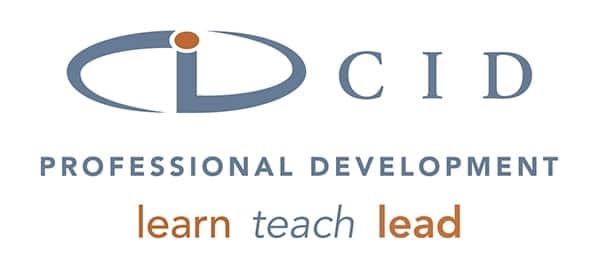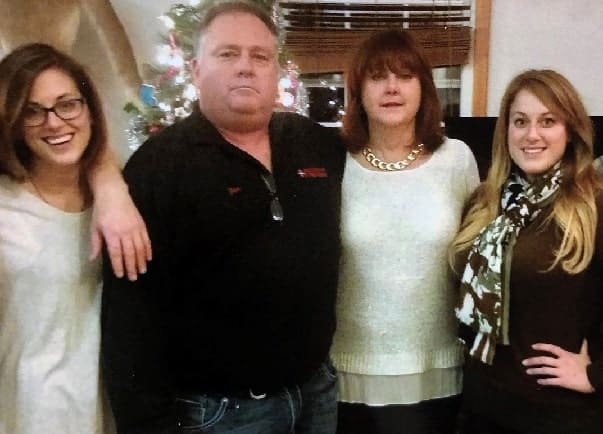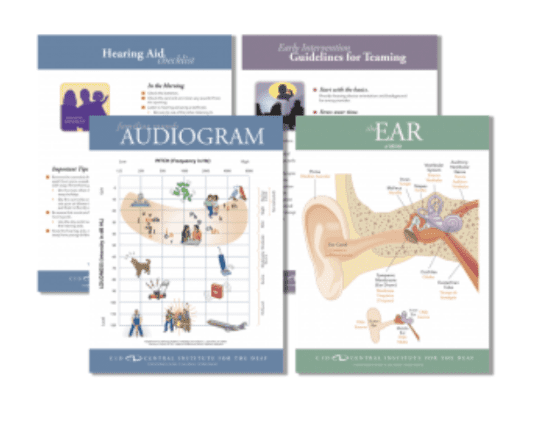In honor of Better Hearing and Speech month, we are continuing to learn about CID’s audiology extern, Sam Kesteloot, and her family’s journey with hearing loss. In case you missed them, catch up on part 1 and part 2. This week, Jim and Debbie Kesteloot, Sam’s parents, share their experiences and offer advice to other parents of children who are deaf and hard of hearing.
Q: How did you feel after receiving Sam’s hearing loss diagnosis? How did you cope with these emotions?
A: After Samantha and Stephanie’s three-month long battle in the NICU and coping with the ups and downs of that period in our lives, the strongest emotion we felt was anger. We understood the concept of administering intravenous antibiotics drugs before receiving a positive/negative lab test result, but the hospital failed to provide us with side effect information. We were so angry at the hospital for this lack of information because we had no idea what to look for as the girls got older. Looking back, there were so many signs that we missed. Sam always let Steph go into a room first and talk first. She would always turn your face with her hands so that you would be looking directly at her. We noticed if you were behind her and speaking, she had no idea you were talking to her. It always makes us sad to think we missed those clues and could have gotten her help sooner.
There are also two specific situations that stand out as being memorable. First, the school district tested the girls hearing before preschool and reported that Stephanie was the one with hearing loss–that was perplexing. Second, the insurance company told us that hearing aids “were for comfort only” and they were not covered. That was super frustrating as we did not have the money to purchase hearing aids at that time.
Q: Sam stated that she wore her hearing aids from the moment she woke up until bedtime. Was this ever a challenge? If so, how did you overcome these challenges to achieve her full-time device use?
A: Samantha was very good about wearing her hearing aids and FM unit. The only challenge was Sam’s occasional tendency to lose her hearing aids. When this would happen, finding the money to replace them was difficult.
Q: Sam shared with us the services and support she received throughout her school years. Was it a challenge to get these services?
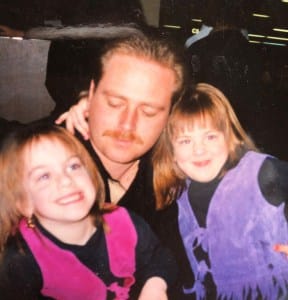
We had to threaten legal action to get what we believed was best for Samantha–not best for the school district. We were lucky to have a teacher consultant who advised us outside of her “allowed” responses and provided us with information about legal advocates and Sam’s legal rights under IDEA that the district had been encouraging her not to share.
Later, Samantha worked with Shannon Williams, a teacher consultant from Oakland Schools. Shannon empowered Sam in such a way that it made her into a remarkable young woman who would not and did not let hearing loss stand in her way. Samantha became a very strong self-advocate amongst her classmates and teachers because of the work she and Shannon did.
Q: IEP meetings can be scary and stressful for parents. Do you have any advice for parents (especially parents of a child with hearing loss) on navigating these meetings?
A: This is so tough. You are meeting with people who “want to do what is best for your child” but who also have a financial bottom line. We would highly recommend bringing along with you a parent of a child with hearing loss who has gone through this, or another advocate. DO NOT feel like you have to make a decision at the first, second or even third IEP meeting. Take your time, do your research–before, during and after the IEP process.
If there are people in that IEP who you feel truly act in the best interest of your child, seek out their expertise and talk to them. Take knowledge from people who directly work with children with hearing loss. If your child has access to a deaf/hard of hearing program, push to get them in it. Fight for what you know is right!
Q: What is one thing you wish you had known about having a child with hearing loss?
A: It is important that parents understand their child’s hearing loss, specifically, what they are able to hear and what they are unable to hear. It is also important that they pass this information to those working with their child, and as was mentioned above, that they fight for their child’s rights and encourage their child to be a strong self-advocate.
We also often wonder if Samantha had not been a twin, if things would have turned out differently. Would we have treated her differently? Expected less from her? We always held Samantha to the same expectations as Stephanie– good grades, no excuses, and instilled in both of them that working hard for something makes it worth more.
We do, however, realize that we failed to see just what a struggle this has been at times for Samantha. That makes us sad. A parent always wants to help lighten their child’s burdens and hardships, but we cannot always do that.
As parents, do not ever think that your child’s special need is an acceptance of “I/you can’t do that.” With encouragement, support, accountability, hard work and love, your child can be whatever they truly wish to be.
We look at our daughter and smile. She is the prime example for both children and parents that you can succeed. Will it be more difficult? Probably. Is it worth it? You will have to ask Samantha, but we think she’d say yes.
———————-
Thank you, Jim and Debbie for sharing your journey and offering encouraging words of wisdom to other parents. Please continue to follow CID’s blog for the final post in this series featuring Sam’s twin sister, Stephanie.
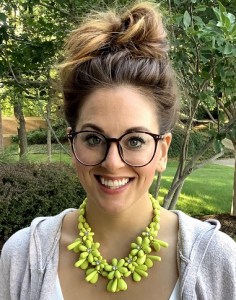
Sam Kesteloot, AuD, received her doctoral degree in audiology from Wayne State University. She recently completed her externship at CID-Central Institute for the Deaf and has accepted a position as an audiologist in the Trenton School District in Michigan.
Interview conducted by Jessica Klein, MS, CCC-SLP
